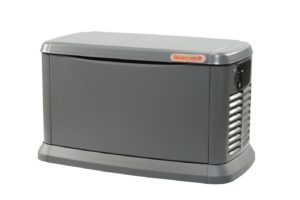
What Generator is Best for Me?
There are two generators that most energy consumers choose from: a home standby generator and a portable power generator. Home standby generators are permanently installed in one spot and automatically start working when a power outage occurs. This particular generator is a bit more expensive than its counterpart, but users can enjoy the convenience and peace of mind that their automatic power brings. In comparison, a portable power generator is typically smaller in size and does not start automatically. While they do cost less and can be taken anywhere, this type of generator runs on gas or diesel fuel. This means that you will always need extra fuel on hand in case a power outage happens.
Which Fuel Should I Use?
It’s important to take fuel type into account before purchasing a generator. The most commonly used fuel types for generators are natural gas, diesel, and propane. Natural gas is a great option, as it is provided by local utility companies. However, this means that it is subject to high prices and reliance issues if you don’t live near a local utility company. Another option for fuel is diesel. While diesel is less flammable, the pricing often fluctuates and it has a short lifespan. That leaves us with the last fuel type, propane. Propane is the most popular fuel for generators, as it has great heating efficiency and zero greenhouse gas emissions.
What Size Should I Get?
When choosing the size of your generator, you should consider how much energy you use in your home. If your energy usage is on the lighter side, then a portable generator will work for you. If you typically use more energy than the average homeowner, then go with a larger standby generator.
What About Warranties?
Buying a generator is a big investment. When you’re on the market for a backup generator for your house, a good warranty should always be a top priority. While most generators come with a standard warranty of one to five years, there are sometimes options available for extended warranties.
Now What?
Now that you know all of the right questions to ask when purchasing a generator, you’re probably ready to start looking! If a standby generator is looking like the perfect fit for you and your home, then allow us to tell you about the Automatic Standby Generator from Clay’s Climate Control. Within seconds, the Honeywell Automatic Standby Generator will kick in when the power goes out and will keep running until power is restored. They can even be hooked up right to your gas line, no additional fuel is needed! Your generator will also come with a five-year parts warranty to give you peace of mind. If you’re interested in an Automatic Standby Generator for your home, then contact our team today to receive your free estimate!

